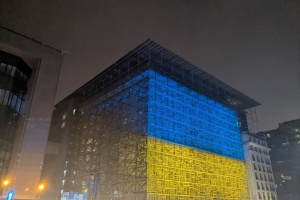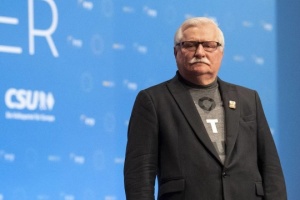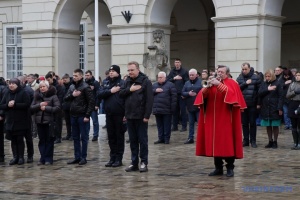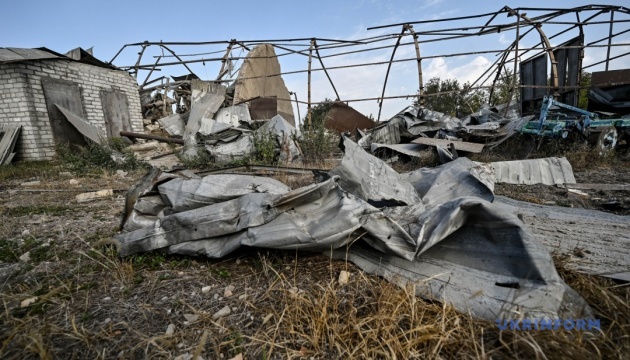
"I was on my knees and crying"
The frontline community in Zaporizhzhia is shelled by the Russian military almost every day. Locals say that there are three types of shelling: artillery, rocket and air attacks with cruise missiles. The latter are the worst. The enemy uses various weapons to reach and destroy everything they cannot capture.

THE WORK OF 30 YEARS WAS DESTROYED IN 30 SECONDS
Before the war, there were 4195 residents here, now there are 3608. People came from villages that are very close to the front. The community has electricity, gas, and imported drinking water. Moreover, local farmers continue to sow, cultivate and harvest despite the shelling.
Yakiv Marynchenko also had a small agricultural enterprise. The man has been growing grain and sunflower since 1995. He processed the grain into flour and sold it to local residents. On August 25, an enemy missile instantly destroyed his life's work.
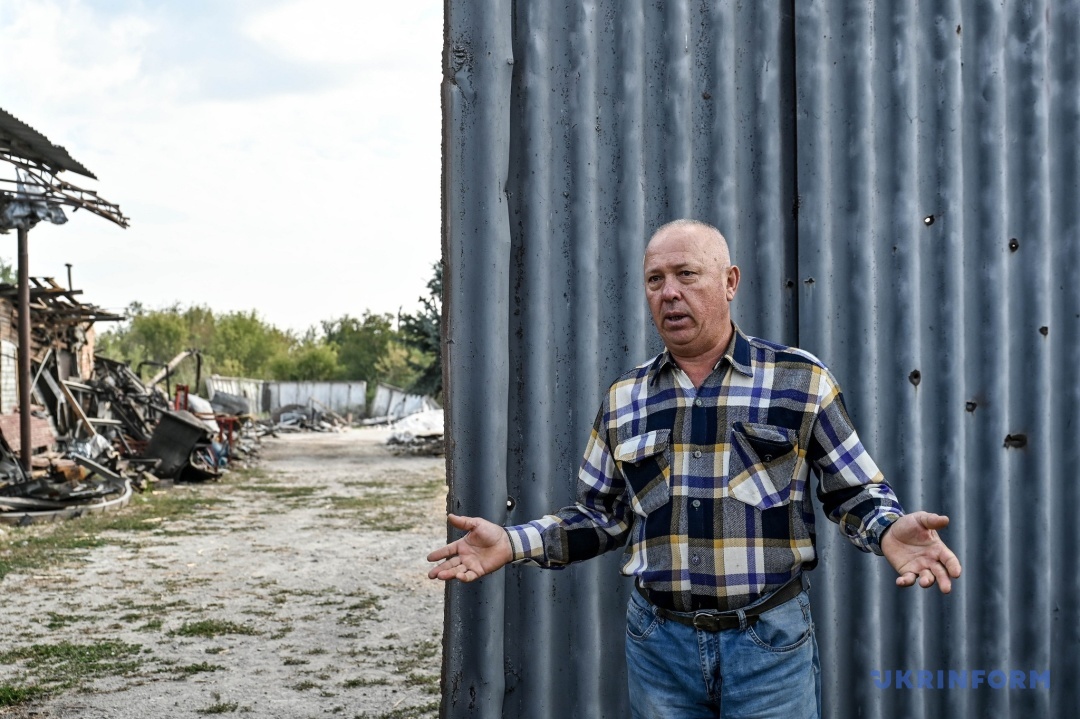
"I was at home when the explosion happened. I came here and cried. I was on my knees and crying. I could not believe that such destruction could happen. That a missile could twist metal, destroy everything that was made with a soul. 30 seconds passed - and the business I spent almost 30 years of my life on, which I wanted to leave to my children, was destroyed. Imagine, in just 30 seconds. I didn't leave the house for two or three days, I couldn't sleep. Everything turned upside down," says Yakiv.
He agreed to talk to journalists so that we could record the consequences of the crime committed by the Russian military.
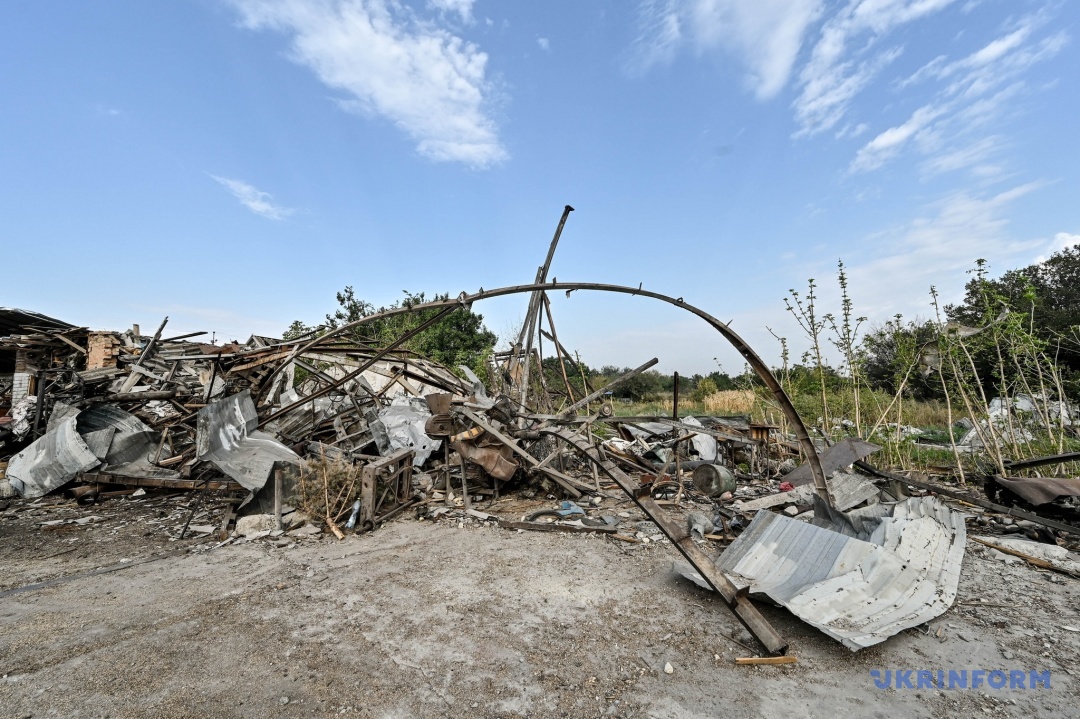
The man is 67 years old. The community in which he lives is not named for security reasons. The farmer took us to the territory of his completely destroyed enterprise.
"I had two hangars here. The first one was 36 meters long, and there was a mill there. The second one was a warehouse for the grain I harvested," Yakiv Vasylovych begins the "tour", passing between torn pieces of metal and equipment. The enterprise is not subject to restoration.
MILLIONS IN LOSSES
The entrepreneur says he hasn't counted the losses yet. He hasn't even cleaned up anything so that the relevant authorities could record the war crime.
"To put it roughly, it's 3 million UAH. About 100,000 dollars. I'm a small businessman, I didn't have much income," the man says.

Russian troops had been shelling the community with cluster shells since the beginning of the full-scale war. The ceiling of the hangar looked like a sieve, full of holes. The man says he repeatedly patched it and continued to work. But this time the enemy attacked with a missile.
"There is nothing else. There is a combine harvester over there with a punctured cab and damaged radiators. Next to it is a shower room that I built for the workers. It is also damaged. The equipment for fertilizing and spraying the fields was destroyed. The explosion was of terrible power. The metal flew 150-200 meters away, and we collected it in the village," says Mr. Yakiv.
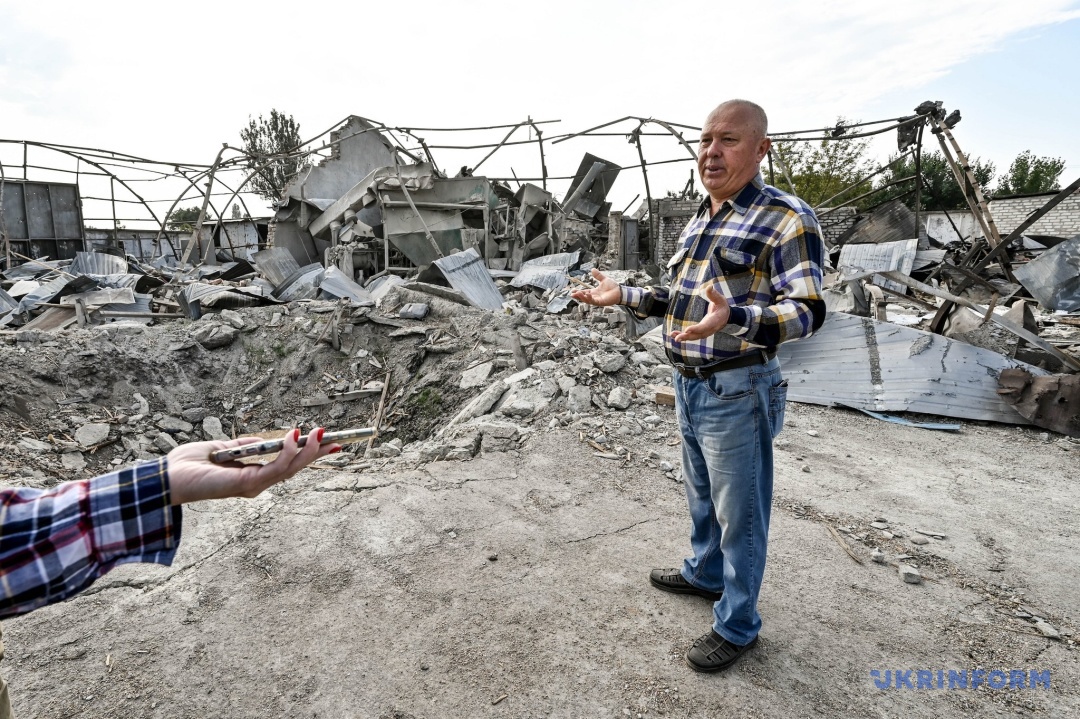
The Russians struck at eight in the morning. Miraculously, there was no one on the territory of the enterprise, and the owner himself had left on his tractor a few minutes before the strike to run errands.
The strike left a crater in the middle of the farm's former yard, next to the mill. Preliminarily, it was the result of an Iskander or X-41 missile. The type of missile is to be determined by investigators. The farmer adds that, as explained to him by the State Emergency Service and the Security Service of Ukraine, who worked at the site immediately after the strike, if the enemy had hit with an S-300 missile, the damage would have been less, and the crater would have been much larger from the KAB 500.
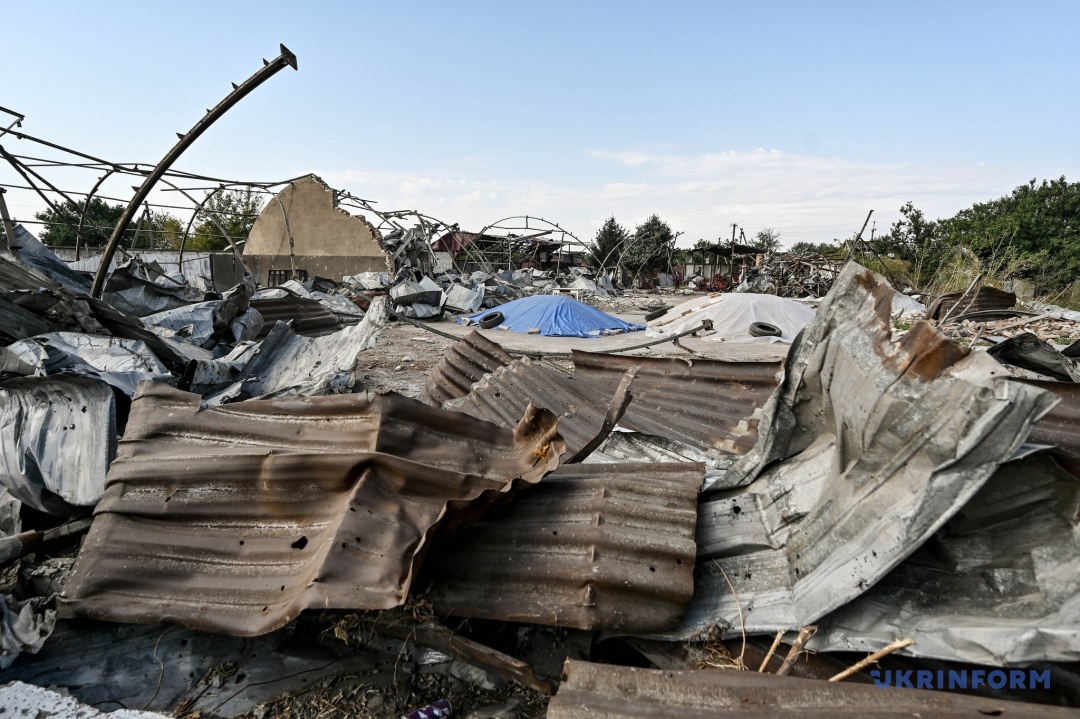
UNITE TO SURVIVE
He owns up to 60 hectares of land. He bought a mill in the early 2000s from a factory in Vinnytsia region. He doesn't know whether he will install a new one, and doesn't even think about it. The farmer sighs: he has lost his farm, and seven of his permanent employees have lost their jobs.
"It is very difficult to say what will happen next. First of all, we need to wait for our victory, and then plan something. The occupiers are shelling every week. Today they fired heavily from four to six in the morning. Now it's quiet - they are probably having breakfast. They will start again in the afternoon," the source said.

I ask him what will happen to the land, will it be sown?
"The land remains, but the equipment is damaged. The tractors and the GAZon - everything has turned into scrap metal. Now I have to rent equipment and pay to cultivate the land. I will ask my colleagues to help. I have support," he says.
In October, Mr. Yakiv was supposed to harvest sunflowers - he has 20 hectares of land planted with this crop. He said that a local farmer would help him mow and provide a storage facility.
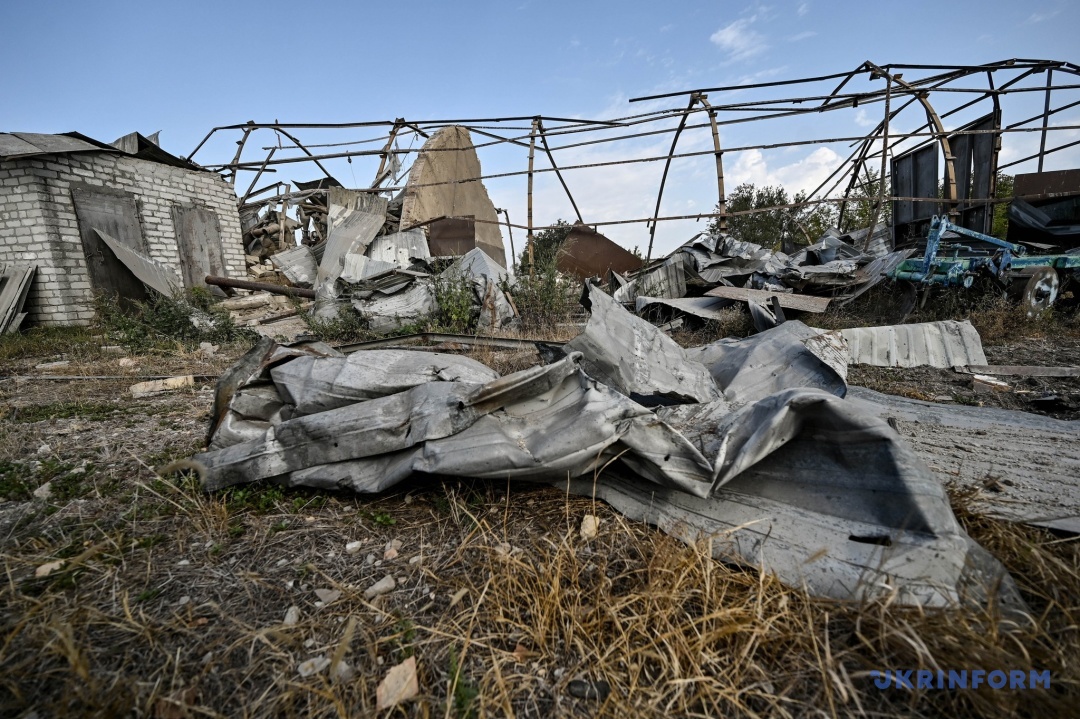
The man in question flatly refused to talk to journalists. He is very afraid that the invaders will somehow find out about his farm and destroy it.
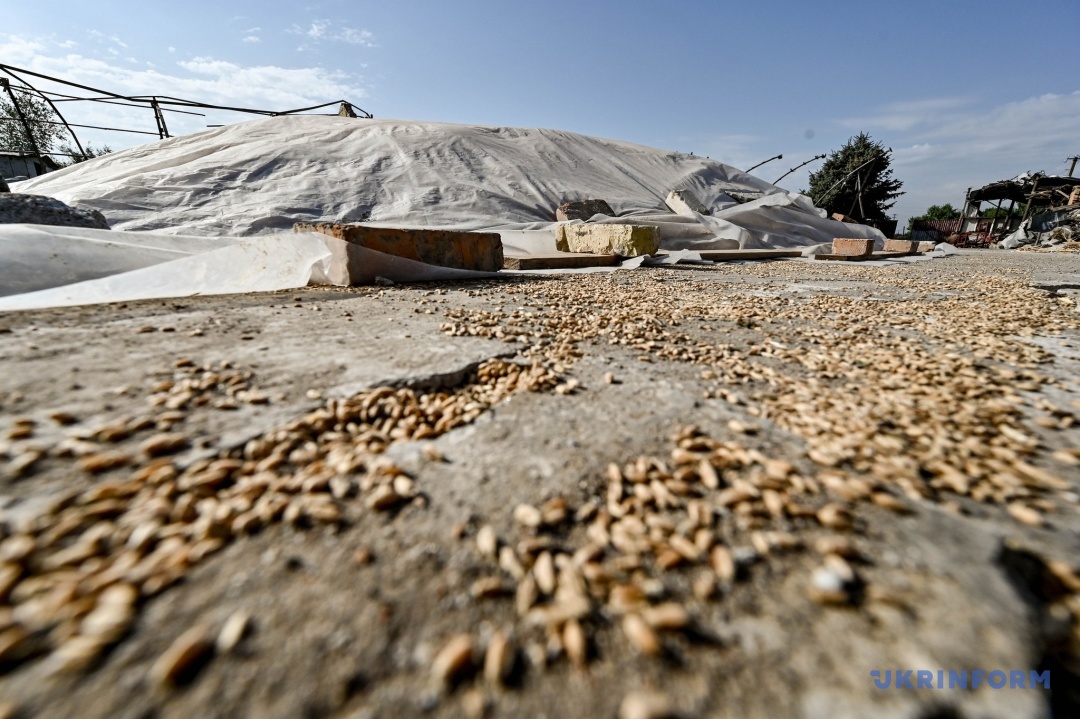
Yakiv Vasylovych also had to sow wheat. He had about 50 tonnes of grain stored - the man left it for the sowing season. Now it is two small piles of grain mixed with stones and cement dust.
"After the missile strike, it was spoiled and burnt. It is impossible to sow. And the smell is so bad that it's not suitable for processing. We can only use it for cattle feed," he says.
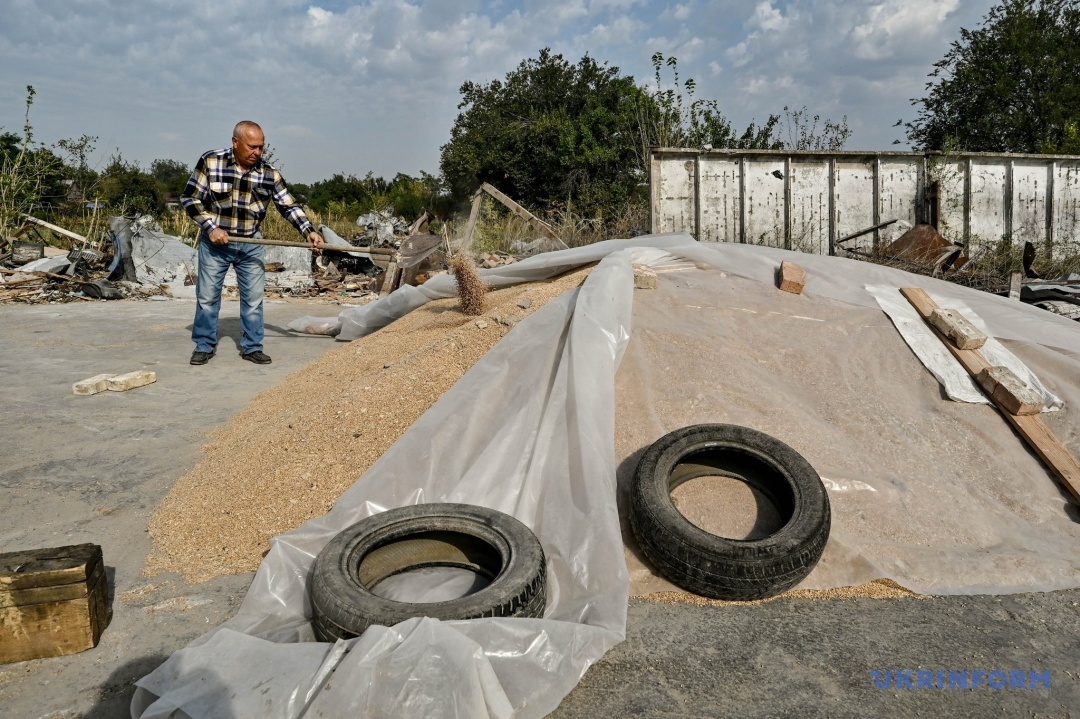
At our request, Yakiv Vasylovych opened the grain (it was under a film in case of rain). He wanted to take a handful, but stones prevented him. He started shoveling it with a shovel, and a terrible dust rose. The farmer says that about 30 tonnes burned at once.
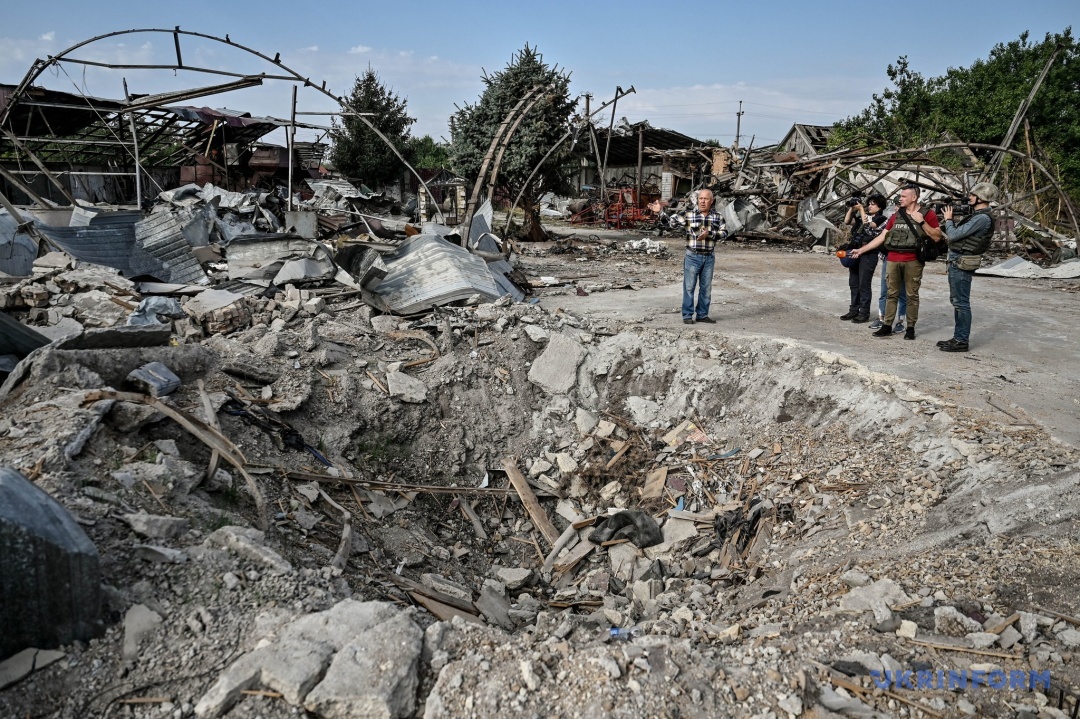
Some time has passed since the missile strike, but he still has difficulty speaking. It's as if a lump in his throat is in the way. Mr. Yakiv shares that he used to talk to his fellow farmers about how they would help each other in case of an "arrival". But then everyone secretly thought that this could not happen to them.
"My partners and friends call me. But I don't ask for money, because I can't guarantee safety. I will register the damage and hope that the state will help me later. And now I need to harvest the sunflower and sow the grain," says the farmer.
Olha Zvonariova
Photo by Dmytro Smolienko


